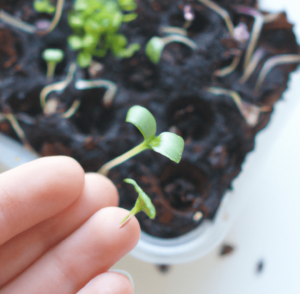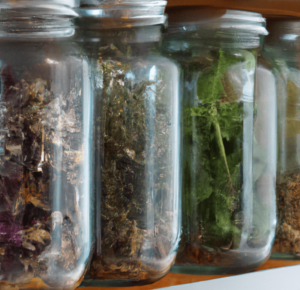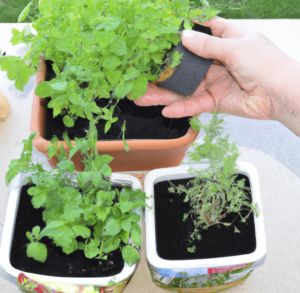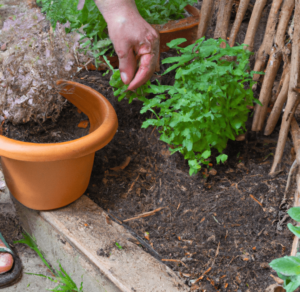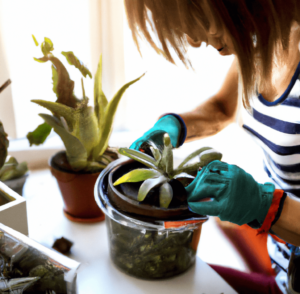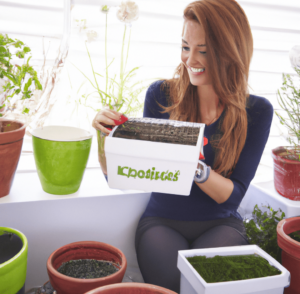The importance of garden maintenance is more than just chores, keeping a well-kept garden is the best way to take care of all your hard work. While gardening can be laborious, it can also be beautiful which is why we’ve put together everything you need to know about maintaining your outdoor space.
Planning and Designing
Planning and creating your garden will help ensure its health and beauty for years to come, whether you’re designing a business property or a household lawn. When creating and planning your garden, keep the following factors in mind:
- Soil preparation: A successful garden depends on good soil preparation. It’s critical to evaluate the soil’s condition and determine whether any amendments are required to support the plants you intend to cultivate.
- Plant needs: Take into account the upkeep needs of the plants you intend to include in your garden. It’s crucial to choose plants that fit your level of time and money because certain plants may take more maintenance than others.
- Lawn layout: Your lawn’s design can have a big impact on how much maintenance it requires. For instance, including curves and various levels in your lawn design can both provide aesthetic interest and help you use less mowing.
- Considering commercial property: It’s crucial to take the space’s upkeep requirements into account when planning a business building. Making the garden simple to maintain over time, may entail including features like irrigation systems, landscaping, and appropriate soil preparation.
- Professionals: Even while you can plan and design your garden yourself with the help of gardening guides, partnering with experts can help guarantee its success. The proper plants, hardscaping, and other design components can be used to create a garden that is tailored to your individual needs by landscape architects and designers.
The importance of garden maintenance will differ from garden to garden. You can plan and start a garden that will give you the aesthetically beautiful space of your dreams with minimal maintenance or one that requires more care and attention during this stage.
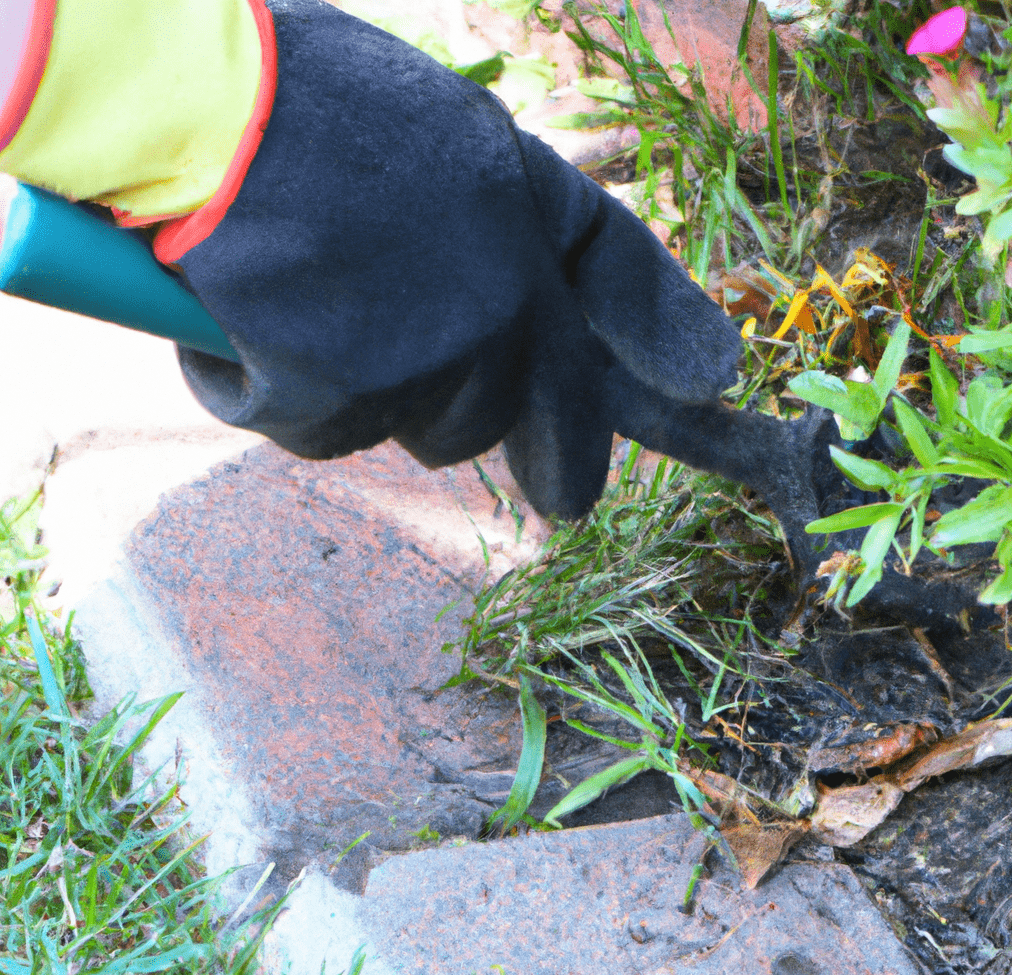
Tips for Choosing the Right Plants for Your Garden
Just like how you take time to choose the right garden tools for beginners, each and every plant in your garden will need to go through a screening. Here’s how to choose the right plants for your garden:
- Location: Before selecting plants, take into account the location, scale, and orientation of the space you wish to fill in your garden. You may use it to determine what kinds of plants would grow well there, taking into account things like soil type, wind, and sunlight.
- Analyze the property: Examine the type of soil, the amount of wind and sunlight, and any other natural elements on your land that may have an impact on the development of plants.
- Plant maintenance: When selecting plants, take into account the time and work you’re willing to invest in their upkeep. While some plants are minimal maintenance, others need more care and attention.
- Use a service for landscape design: Use a garden design service if you’re unsure where to begin or need assistance with garden design. These experts may assist you in designing a functional and visually beautiful garden.
- Pay attention to the earth: Many plants can’t tolerate damp soil, so make sure the ground in your garden is well-drained. If your garden’s soil is deficient, you might want to modify it with compost or other organic material to give your plants a better growth environment.
How to Arrange Plants for Optimal Growth and Aesthetics
Learning the importance of garden maintenance is important and you’ll need to arrange your plants so that they thrive and achieve their full potential:
- Choose the ideal location for each plant. While some plants prefer the direct sun, others perform best in the shade. Place each plant in the location that best satisfies its unique requirements after taking into account those demands.
- To reduce landscaping maintenance, use ground cover. Your lawn will be healthier and simpler to maintain if you use ground cover plants to control weed growth and preserve soil moisture.
- With taller plants, you may create focal points. You may provide focus points that add interest to your landscaping and break up the monotony of a flat lawn by strategically arranging taller plants.
- Sort plants according to how they grow. It will be simpler to manage the health of your landscape if you group plants that require similar amounts of water and have similar growth tendencies.
Soil Preparation and Fertilization
Before moving on to the importance of garden maintenance, you’ll need to know about the soil and fertilizer in your garden. You can prepare both by doing the following:
- Have the soil analyzed: Knowing the type of soil you have before beginning any soil preparation or fertilizing is crucial. You can learn more about your soil’s pH and nutrient content by using a soil analysis service.
- Engage a landscaper: Consult a professional landscaper if you’re unsure of how to prepare your soil or what kind of fertilizer to use. These professionals have the expertise and experience to support you in achieving the greatest outcomes for your garden.
- Upkeep is essential: The secret to maintaining healthy, productive soil is routine care. To keep the soil in its ideal state, this entails clearing away any waste, adding organic matter, and using the right fertilizers.
- Pick the appropriate fertilizer: The kind of plants you have in your garden and the soil conditions on your land will determine the sort of fertilizer you use. You may choose the appropriate sort of fertilizer for your garden with the aid of a landscaper or a service that analyzes the soil.
- Remember to check the pH level: Your soil’s pH level can have a significant impact on the well-being and development of your plants. You can use a soil study to assess your soil’s pH level and then work with a landscaper or garden maintenance firm to make any necessary adjustments.
- Pick the appropriate changes: Select the proper soil amendments to add to your soil based on the findings of your soil test. Compost, organic matter, and other elements that enhance soil fertility and structure may be included in this.
- Regular fertilization For the purpose of preserving soil fertility and fostering plant growth, regular fertilization is necessary. Pick a fertilizer that is suitable for the soil type in your garden or lawn as well as the plants there.
- Air up the ground: Your soil’s structure can be enhanced, healthy root growth can be encouraged, and soil compaction can be decreased through soil aeration. Due to the poor water and air circulation that compacted soil can cause, this is particularly crucial for lawns.
Importance of Soil Preparation and Fertilization
You may be wondering, how soil and fertilizer fit into the importance of garden maintenance. Well, these two things play a vital role:
- Good plants grow on healthy soil: In order to ensure the health and growth of the plants in your garden or lawn, proper soil preparation and fertilizer are essential. For vigorous root growth and general plant health, healthy soil offers the proper ratio of nutrients, air, and water.
- Increase in property value: The value and appeal of your property can be significantly increased by having a well-kept lawn and garden. Creating the ideal conditions for plants to develop in, soil preparation, and fertilizer are essential to reaching this objective.
- Save time and money: By investing in soil preparation and fertilization, you can cut back on the frequency of maintenance and plant replacements for plants that aren’t thriving.
- Enhanced grass quality: Fertilization and proper soil preparation are crucial for keeping a lush, green lawn. A healthy lawn requires less frequent lawn maintenance because healthy soil supplies the nutrients grass needs to grow strong and resist disease and pests.
- Important for commercial properties: Just like for residential homes, commercial properties like parks and golf courses require proper soil preparation and fertilization. In order to create appealing and well-maintained green spaces that can serve to draw clients and improve a company’s reputation, proper soil upkeep is crucial.
How to Choose the Right Fertilizer and Mulch
The importance of garden maintenance is also tied to choosing the right fertilizer and mulch because you can significantly boost the health and aesthetics of your plants this way. To choose the right fertilizer to mulch:
- Know your soil: It’s critical to understand the type of soil in your garden before choosing a fertilizer. Testing your soil can give you a fair understanding of the nutrients your plants require to thrive because different types of soil have varying nutritional requirements.
- Professional guidance: Speak with nearby gardening experts to acquire suggestions on the ideal mulch and fertilizer for your particular garden. They can also assist you in deciding how much and when to use it.
- Density: Mulch can also aid in the control of weeds in your garden. Weed growth can be inhibited by choosing a mulch that is dense and completely covers the soil.
- Think about your plants: Choose a fertilizer that is suitable for the kinds of plants you have in your garden because different plants have varying nutrient needs.
Always follow the directions on the packets of mulch and fertilizer, and be careful not to use too much since this can hurt your plants.
Watering and Irrigation
Watering and irrigation go hand in hand with the importance of garden maintenance. You keep your property healthy and bright. So, why are watering and irrigation so important?
- An efficient irrigation and watering system is required whether you have a small residential area or a huge commercial property to maintain the moisture in the soil and the health of the plants.
- Your choice of system will be influenced by the size of your property and the kind of service you require.
- To make sure your irrigation system is operating properly and to avoid issues like leaks, clogs, and inefficiencies that can waste water and money, regular maintenance is imperative.
- In addition to keeping the soil moist and encouraging root development, appropriate watering can also aid in avoiding issues like disease, pest infestations, and drought stress.
- In addition to encouraging a healthier environment, effective watering can ultimately help you save time and money. By effectively watering your region, you can use less water overall and avoid overwatering, which can result in water waste and higher water costs.
Tips for Conserving Water and Preventing Over-Watering
For anyone looking to conserve water and prevent overwatering, here are our tips:
- Hire a landscaper or professional agency to evaluate your garden and develop an irrigation strategy that satisfies the unique requirements of your plants and soil.
- Install a smart irrigation system that regulates watering based on the climate, the moisture of the soil, and other variables.
- Avoid watering during the hottest part of the day and group plants with similar water need together.
- Utilize mulch to keep the soil moist and lessen evaporation.
- Check your irrigation system for leaks on a regular basis, and make sure the sprinkler heads are adjusted so that water is only applied where it is required.
- For your garden, think about using drought-tolerant plants and add drought-resistant landscaping strategies like rock gardens or xeriscaping.
- Instead of giving your plants a little mist every day, water them deeply but seldom.
- Gather rainwater in barrels to utilize for irrigation when it’s dry out.
- Inform yourself and others about the value of water conservation and the need to avoid overwatering.
How to Use Irrigation Systems and Rain Barrels
Rain barrels and irrigation systems are necessary equipment for maintaining a landscape properly, especially in the summer when plants require regular watering. Here’s how to use them:
- Maintenance: To maintain the effectiveness of irrigation systems, regular maintenance is required. Make sure the sprinkler heads are operating correctly, and inspect the pipes for leaks or obstructions. Additionally, update the watering schedule as necessary to reflect changes in the weather or plant water requirements.
- Coverage: Irrigation systems should supply water to every plant and bloom in the area that needs to be watered. Make sure the system is correctly installed and calibrated to distribute an equal amount of water over the landscape.
- Plants: Because different plants have different water needs, it’s critical to customize your irrigation system to fulfill those needs. For plants that need less water, think about adding drip irrigation systems, soaker hoses, or sprinkler systems.
- Rain barrels: Using rain barrels to collect rainwater can help you save money and water. To collect rainwater, attach the barrels to your gutter system. Then, use a pump or hose to supply the water to your plants.
Pest and Disease Control
Pest and diseases are why the importance of garden maintenance is a widespread subject.
Common Pests and Diseases That Affect Gardens
Different pests and diseases that harm plants and stunt their growth and health can influence gardens like the following:
- It’s critical to keep weeds under control since they can compete with your plants for nutrients, water, and sunlight. Mulching and hand pulling are both efficient ways to control weed growth.
- Aphids, Japanese beetles, and caterpillars are some of the most prevalent garden pests. Pests can be controlled with the help of pesticides, but it’s crucial to pick ones that are safe for the environment and your plants.
- Plant diseases can affect a plant’s leaves, stems, and fruit. Examples include powdery mildew, leaf spot, and blight. Diseases can be avoided with proper garden upkeep, which includes enough airflow and soil drainage.
Get professional advice if you’re having problems controlling pests and illnesses in your garden. They can identify the issue and make recommendations for the best solutions to maintain the health of your garden.
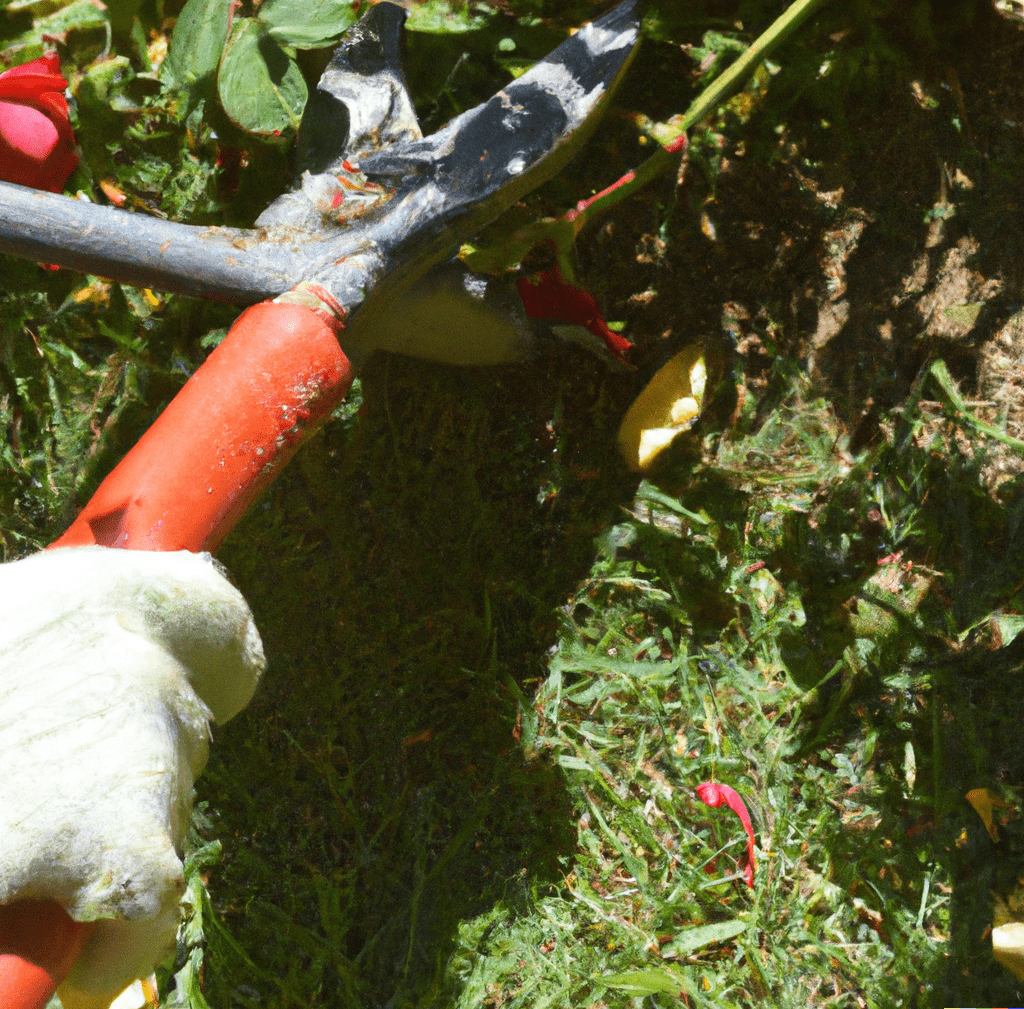
Tips for Preventing and Controlling Pests and Diseases
Learning about the importance of garden maintenance because you’re worried about pests and diseases? Here are our tips:
- Proper Area Maintenance: Regularly maintain the area by removing dead leaves, grass clippings, and other debris which can harbor pests and diseases.
- Healthy Lawn: A healthier lawn is less susceptible to pest and disease problems. Maintain proper mowing, watering, and fertilizing practices to keep the grass in optimal condition.
- Ground Preparation: Prepare the ground before planting by removing any old plant debris and tilling the soil to a depth of 6-8 inches. This helps reduce the population of soil-borne pests and diseases.
- Use Resistant Varieties: Choose plants that are resistant to common pests and diseases in your area. This can save time and money by reducing the need for pesticides and treatments.
- Proper Landscape Maintenance: Keep the landscape free of overgrown shrubs and trees that provide shelter from pests and diseases. Proper pruning, thinning, and shaping of plants can help reduce the risk of pest problems.
Remember, an ounce of prevention is worth a pound of cure.
How to Choose and Use Pesticides and Other Control Methods
After learning about the importance of garden maintenance, you may want to use different control methods for pests. To do this:
- Determine the issue: Determine what you are attempting to control before selecting a pesticide or control approach (e.g., weeds, pests, diseases, etc.).
- Think about substitute techniques: Prior to using pesticides, try using other strategies like hand-pulling, physical obstacles, or natural predators.
- Pick the best pesticide: If you must use a pesticide, pick one that is specially formulated to address the issue you are attempting to solve. Be sure to adhere to the warnings and safety measures on the label.
- Hire a pro: If you are unsure about utilizing pesticides or other control measures, think about hiring a service or landscaper who is knowledgeable and skilled in these approaches.
After using the pesticide or other means of control, keep an eye on the results to make sure the issue is being effectively managed. If not, you might need to try a different approach.
Pruning and Training
Learning how to prune and groom your plants is a vital part of the importance of garden maintenance. Remember the following:
- Promote Fruiting and Blooming: Proper pruning and training can assist promote fruiting and flowering, healthy growth, and overall plant beauty.
- Timing is Everything: When it comes to pruning and training, timing is everything. While summer pruning might be advantageous for some species, late winter or early spring pruning is better for the majority of plants.
- Maintaining Shape: Pruning on a regular basis can help keep plants’ sizes and shapes consistent, and training can drive new growth in the proper direction.
- Avoid Overpruning: Overpruning can weaken plants, induce stress, and make them more vulnerable to diseases and pests. Take care not to prune excessively; simply remove dead, diseased, or crossing branches.
Proper pruning and training techniques can boost plant development, increase yields, and improve the general health of the plants in addition to improving the property’s aesthetic appeal. Well-maintained plants can add to a positive image and raise property value in commercial assets like office buildings, parks, or public places.
On the other side, disregarding pruning and training can lead to landscapes that are overgrown, unsightly, and perhaps dangerous. Pruning and training trees on residential properties can improve the property’s curb appeal and aid to preserve the home’s value.
Because pruning removes dead or diseased plant material, which allows for greater air and water circulation to the roots, it can also help to improve the health of the plants and soil. To preserve the health and beauty of the plants, it is crucial to know the right methods for pruning and training as well as to follow a regular maintenance program.
Tips for Pruning and Training Different Types of Plants
To make the most out of pruning and training your various plants:
- Beginning with healthy soil: For healthy plant growth, make sure your garden has well-draining, nutrient-rich soil.
- Understanding plants: Research the unique pruning and training requirements of each species you intend to raise because various plants have distinct needs.
- Remove weeds regularly: Regular weed removal is essential if you want to keep weeds from robbing your plants of essential nutrients and water.
- Employ specialists: To guarantee that your plants are properly cared for, it is best to contact skilled professionals for intricate pruning and training tasks.
- Strike a balance between training and pruning: Be sure to balance training and pruning. While excessive pruning can harm plants, insufficient trimming can result in disease and overcrowding.
Bottom Line: The Importance of Garden Maintenance
As you can see, the importance of garden maintenance is vast. You can take care of the soil, get rid of weeds, maintain a healthy lawn, prune, and train various plant species.
Regular garden maintenance can also help keep diseases and pests at bay, encourage strong plant development, and preserve resources like water and fertilizer. For anyone that wants to dive deeper into the importance of garden maintenance, we recommend “The Organic Gardener’s Handbook of Natural Insect and Disease Control.”
FAQs on The Importance of Garden Maintenance
What is the importance of garden maintenance?
Garden maintenance means keeping a garden functional, visually beautiful, and healthy. It includes a variety of chores, including soil management, plant care, lawn and garden maintenance, and weed control which is essential for keeping the environment healthy and improving the appeal of the house.
What are the various facets of garden upkeep?
Lawn care, garden care, soil care, plant care, and weed control are some of the several facets of garden management. Mowing, watering, providing fertilizer, and insect control are all parts of maintaining a lawn.
Why are planning and designing crucial before beginning a garden?
A garden should be planned and designed in order to maintain its health and beauty for many years to come. It considers aspects like soil preparation, plant maintenance requirements, grass design, and requirements for maintaining commercial properties. A garden that has been carefully planned will be more aesthetically beautiful, easier to maintain, and healthier.
What are some recommendations for picking the appropriate plants for a garden?
We recommend keeping the following in mind:
- Take into account the space’s scale, direction, and location while selecting plants for a garden.
- Determine the soil type, amount of sunlight, and wind on the land by doing an analysis.
- Pick plants that will thrive in the particular growing circumstances and will require the least amount of time and money to maintain.
- To ensure the success of the garden, think about collaborating with professionals like landscape architects and designers.
Why is soil preparation crucial to the planning and design of gardens?
Because it is a crucial component in determining the success of the garden, soil preparation is significant in the planning and design of gardens. The best-growing conditions for the plants are guaranteed by good soil preparation.
Why is efficient irrigation of the landscape crucial?
To maintain a healthy and vibrant landscape, proper irrigation is necessary. In addition to helping to keep the soil moist, it promotes root growth and helps to prevent problems like disease, pest infestations, and drought stress. Time and money can be ultimately saved by watering effectively.
What are some recommendations for water conservation and avoiding overwatering?
Employing a landscaper or professional organization, setting up an intelligent irrigation system, avoiding watering during the hottest part of the day, using mulch, checking for leaks, using drought-tolerant plants, watering deeply but infrequently, collecting rainwater in barrels, educating yourself and others on the significance of water conservation are some suggestions for conserving water and preventing overwatering.
How should rain barrels and irrigation systems be used?
The effectiveness of irrigation systems must be maintained on a regular basis, and the system must give water to all the plants that need to be watered in the region. It’s crucial to adjust the irrigation system to each plant’s requirements. Water and money can be conserved by using rain barrels to collect rainfall.
What do garden pest and disease control entail?
You need both appropriate control methods and cultural controls, such as proper soil management and maintenance. Early disease and pest treatment are essential in commercial settings to maintain the property’s aesthetic appeal and market value.
What common illnesses and pests wreak havoc on gardens?
Weeds, aphids, Japanese beetles, caterpillars, and other common pests and illnesses can harm gardens.


